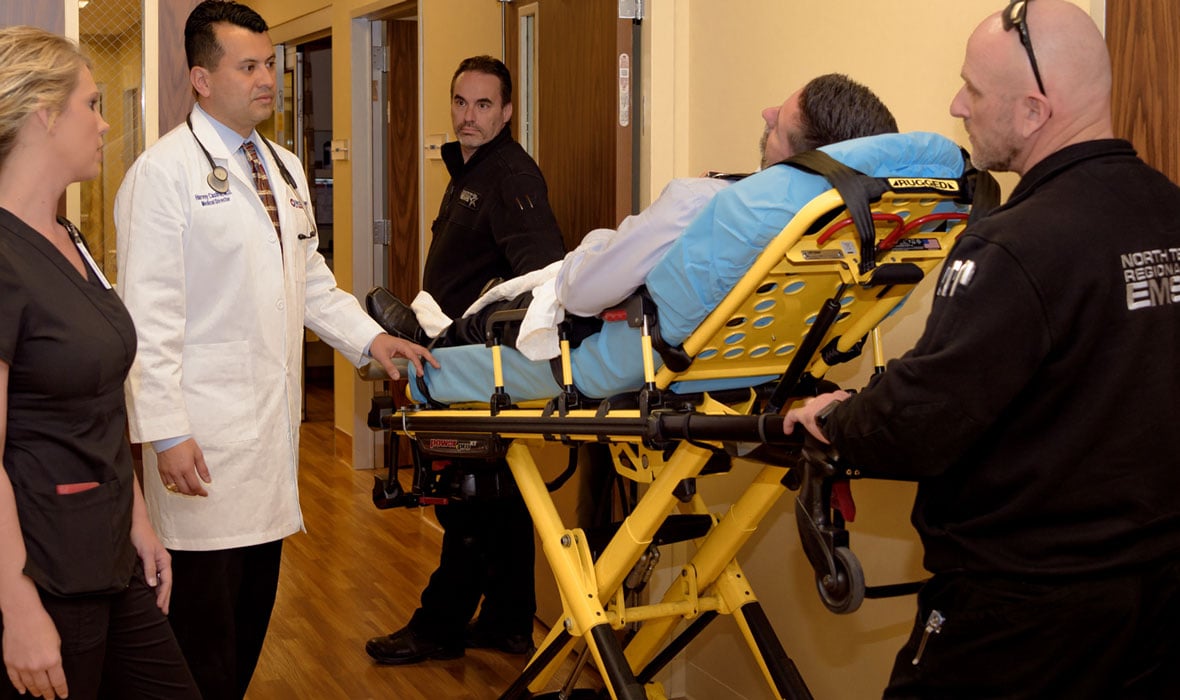Pulsara Around the World - February 2026
January Recap The start of 2026 was on the slow side for our events schedule, with our team heading to the Florida Fire & EMS Conference, the...
2 min read
 Team Pulsara
:
Mar 22, 2019
Team Pulsara
:
Mar 22, 2019

EDITOR'S NOTE: Special thanks to Courtney Chumley, FACPE, for writing today's blog post. You can connect with her on LinkedIn.
Eighteen years ago, I was a brand new paramedic. My boots were un-scuffed and my uniform shirt was spotless. I was ready to be a hero. But then I made my first breathing problems call and my patient had both a history of CHF and COPD and I couldn’t hear her lung sounds. I picked the protocol I thought best and took her to the hospital.
On arrival, Dr. Robert Sheppard walked into the room as I was giving report and promptly starts ordering everything from the protocol I didn’t choose. He probably saw the look on my face and my heart sinking, and he said “come here with me.” He took me out of the room into the empty radiology hallway and told me “you missed it.” I told him I couldn’t hear her lung sounds and he responded, “You didn’t have to hear her lungs… you didn’t listen to everything else her body was trying to tell you. You were too focused on one thing. Don’t miss it again.” He smiled and he walked back into the room to take care of the patient. That two minutes he took out of his day to pull me aside and teach me instead of doing it in front of everyone in the room has impacted my life to this day.
I have watched Dr. Scott Rivenes, who has been my greatest mentor in life, for 20 years walk into patients' rooms and introduce himself as Scott, shake their hand and treat them with only kindness and respect -- regardless of how they have treated him. Mentors like this have taught me how to truly connect with my patients.
I watched Dr. Carrie Blades perform a maneuver during a difficult intubation I had not seen before that I have since used successfully in the field.
Then there is Dr. Mounang Desai who is a serious businessman who comes across quite intimidating to some, but will return my text message in the middle of a plane flight somewhere across the world, day or night, to answer a medical question and teach me something I didn’t know.
I recently had a medic crew respond to a patient with a bleeding AV fistula with significant blood loss. It was not something they had previously encountered and they called me from the hospital to tell me how amazing the ER doctor was at teaching them how to treat this in the future. Later, they came back and shared it with other crew members on shift.
We live in a healthcare society today where EMS rooms are stocked with treats, EMS Liaison positions have been created, quarterly meetings at hospitals are held to help improve relationships between those hospitals and pre-hospital providers. We also live in a healthcare society where ERs are over-crowded, doctors are over worked, nurses are short staffed and medics are working extra shifts, causing stress levels to rise.
But what if all ER Physicians truly realized they hold the key to building these positive relationships? Could they take 2 minutes out in the hallway to make a lasting impact on a new clinician? What if the crew wasn’t so rushed to get back in service that they could spend a few extra minutes in the room observing assessments and techniques used by those doctors? What if we were not afraid to ask questions because we knew we would be answered with respect and taught so that we would be better next time?
There are so many doctors that have paved the way for my success and the success of others, many of whom are getting close to retirement. The world is full of amazing ER physicians who hold the power to transform others into amazing clinicians too … can you spare two minutes?

January Recap The start of 2026 was on the slow side for our events schedule, with our team heading to the Florida Fire & EMS Conference, the...

Recent research shows how Pulsara was successfully leveraged to connect more than 6,000 COVID-19 patients to monoclonal antibody infusion centers via...

At Pulsara, it's our privilege to help serve the people who serve people, and we're always excited to see what they're up to. From large-scale...